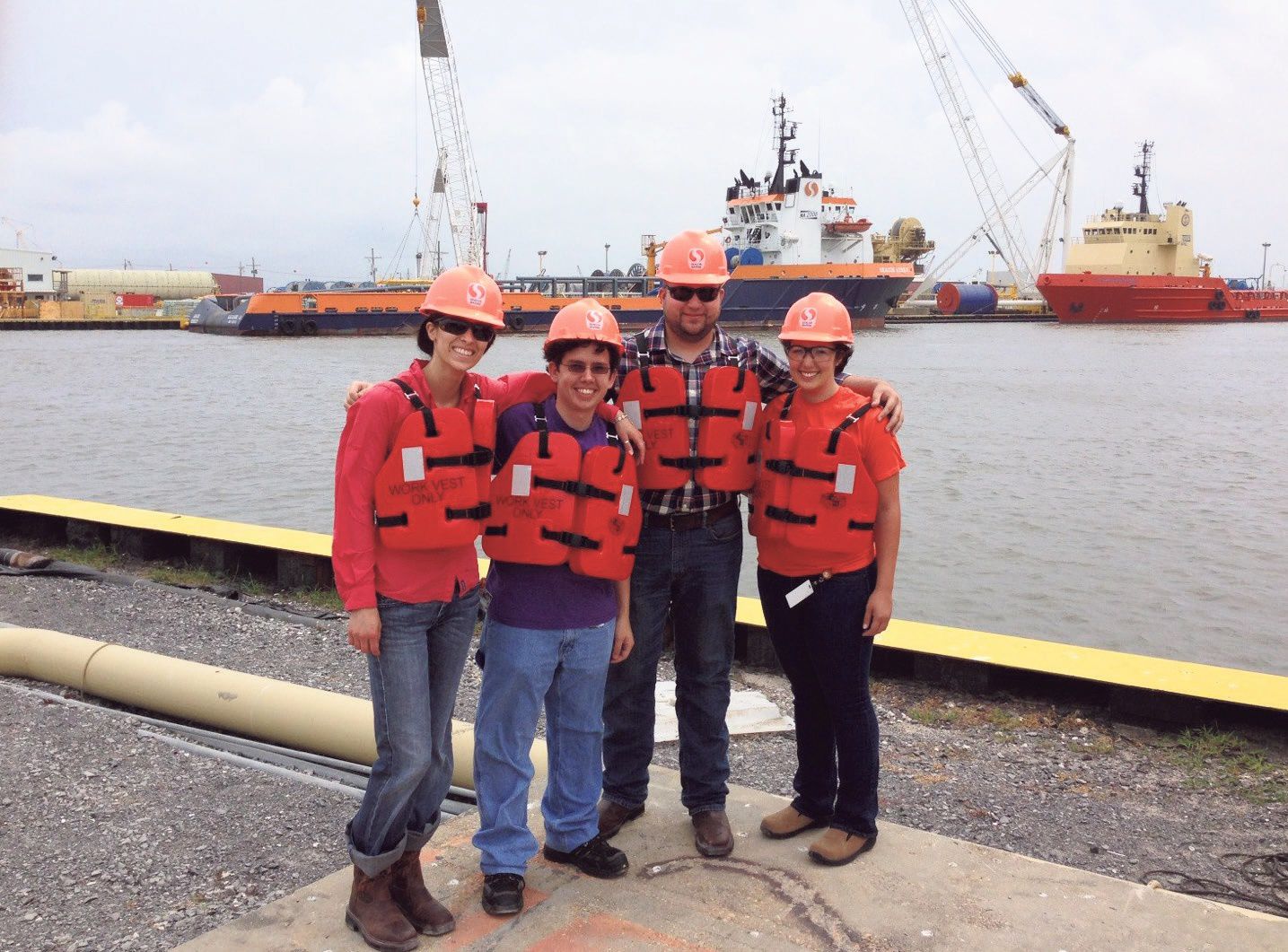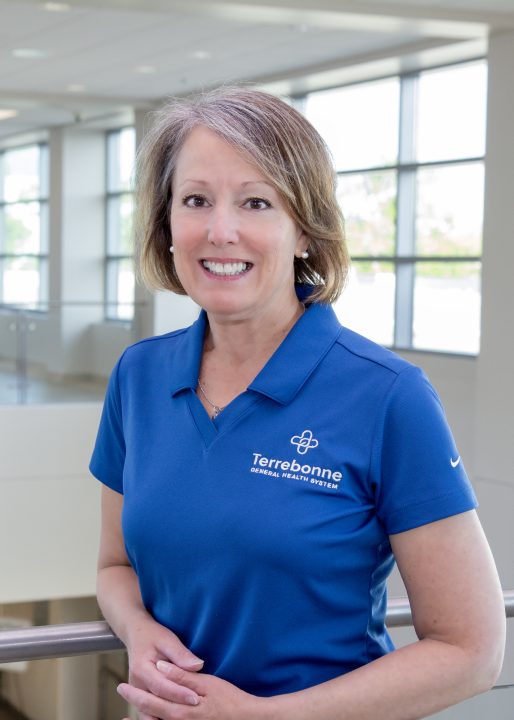
LOOP evolves, plans more storage
May 25, 2016
Death takes no holiday in Chauvin
May 28, 2016Lindsey Prestenbach was in Thibodaux, and she couldn’t figure out her next move.
Prestenbach was in her third year of studying accounting at Nicholls State University, but she did not like the direction she was headed in. She felt she needed a change, so she spoke with her advisor, who recommended she check out the school’s maritime management program.
“I never really thought of it as a possibility for me, I guess just being a woman. But I always had an interest in ships, ever since my fourth-grade field trip to the U.S.S. Kidd,” Prestenbach said. “I checked it out, and I was able to start in the fall of 2014. And I just stuck with it. I really enjoyed it.”
A few weeks ago, Prestenbach walked and received her diploma in maritime management, another success for the program that started in 2013. According to Program Director Dr. Ken Chadwick, the idea for the program came from the local industry leaders. Officials from the South Centrial Industrial Association worked with Nicholls to develop the program and provided the money to pay for its first five years. Marine companies saw a shallow talent pool on the business side, and sought to correct it by providing a specific emphasis at Nicholls.
“The technical and the community colleges are doing a good job addressing the blue-collar side. Nobody was doing the white-collar, professional side,” the program director said.
According to Chadwick, the program at Nicholls is unique in its particular focus. While other maritime management programs on the Texas Gulf Coast or the Pacific Northwest specialize in “blue-water” maritime businesses like international shipping, the Nicholls program is centered on “brown-water” business serving industry in the Gulf of Mexico, primarily oil and gas. Chadwick said Nicholls has the only brown-water maritime program he is aware of.
Most of the maritime classes at Nicholls involve industry leaders coming to Thibodaux to teach the students. According to Chadwick, the pay for those classes is minimal, as the professors do it primarily to build the program. Prestenbach said the advantage of having teachers from outside of normal academia is the real-life experience handed down to her and her classmates.
“We get a lot of hands-on people from the industry coming to talk to us, giving us advice, telling us real-life situations that they’ve been through to help us in the future. And to just get a really good idea of what we’re looking at when we graduate,” she said.
Chadwick said the maritime department has just created a safety minor in conjunction with the Petroleum Engineering Technology and Safety Management (PETSM) department, believing the emphasis on safety would make graduates even more attractive to companies. While the economics of the industry are important, the rules of the industry, such as the admiralty law, are heavily emphasized at Nicholls.
“The rules of the road are much different than the rules at sea. They’re getting this admiralty law. Also, the oil and gas industry and the maritime industry, these are two of the most highly regulated industries in the world. So, there’s more of a focus on the understanding of the regulatory nature,” he said.
SEACOR Marine Vice President Robert Clemons said that knowledge on maritime law is critical because “lawyers cost money.” He said his company put up $150,000 of the original five-year funding for the program and is already starting to see return on its investment by Nicholls grads who join its ranks. According to Clemons, students coming from Nicholls are about two years ahead of other people coming through SEACOR’s program due to their deep knowledge of the specific industry and how to run their own business.
“With this concentration on your diploma, you’re going to have an edge up on all of the other business students out there in finding a job in the industry,” Clemons said. “Even if you take a job that you may not think you want today in the industry, it’s going to get you ahead in the industry faster than anyone else because you have this on your diploma, particularly when things start picking up.”
Chadwick said although the program has seen a hit in enrollment coinciding with the slump in oil and gas, his department is still “pretty strong” with around 65 current students. He said offshore companies have continued to step up and provide funding and internships for the program, a testament to how they prioritize it. And while oil and gas is drawing back on hiring until the market improves, Nicholls students have gained the attention of shipping companies.
One of those students is Grant Rodrigue, who graduated from the program in December 2015. Rodrigue, like Prestenbach, was looking for more direction in his business studies at Nicholls and was told to check out the maritime program. He had a head start in knowledge, as his father has been in the industry since the early 1970s. However, his time at Nicholls involved learning maritime economics, laws and a more in-depth understanding of different vessels and their functions.
Last summer, Rodrigue took an internship with Cooper T. Smith Stevedoring in Darrow along the Mississippi River. After the internship ended, the company offered him a part-time job, which has now translated into a full-time gig. Rodrigue said Cooper T. Smith has been “nothing but good” to him, and while he may have graduated, his learning is from over.
“I work in the safety department right now, but they have me working in other departments like vessel planning. So they’re really helping me learn a bunch of different things about the industry and kind of expand my base of knowledge as everything goes,” he said.
Rordigue has no end goal in sight, saying he just wants the industry to take him where it takes him. As long as he’s involved in the day-to-day operations and management, he knows he’ll be happy. Prestenbach currently works at a bank, and said she plans to stay there until the offshore industry bounces back. Her husband works in oil and gas, and she does not want to put both of their livelihoods at risk in the same depressed market. However, Prestenbach expressed no regret for her educational journey, and she advised other business students looking for a new direction to look into the program.
“They go there and they find out it’s something they’d really like to do as well. I do kind of feel like it’s one of those programs that takes a little while to get into, but once you do get into it, you really love it,” she said.








